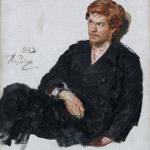
They don’t mix, if you’re looking for the answer up front. There are perhaps several reasons for this, but Alain de Botton offers one in The Wall Street Journal worth considering.
Certain kinds of suffering are beneficial, even necessary for human flourishing, he says, particularly struggling through periods of anxiety and boredom.
Porn diverts us from those struggles. “Our anxious moods are genuine but confused signals that something is amiss,” he says, “and so they need to be listened to and patiently interpreted–which is unlikely to happen when we have to hand one of the most powerful tools of distraction ever invented.”
To combat boredom with this overpowering distraction is equally harmful because “pornography weakens our tolerance for the kind of boredom which is vital to give our minds the space in which good ideas can emerge. . . .”
In both cases, we are unable to attend to the soul, to give it the necessary time and attention because our faculties are otherwise employed. An unoccupied mind is essential for serious contemplation. Times of quiet reflection allow the mind to gather up its loose strands of thought and put them in order and even at times offer them as prayer. Resorting to pornography deprives the mind this opportunity.
Interestingly, de Botton, who is an atheist, says only religion seems to fully understand this diversionary aspect of sex. In our liberated time, “Only religions still take sex very seriously,” he says, adding:
In so far as religions warn us against sex, it is out of an active awareness of the charms and power of desire. They wouldn’t think that sex was quite so bad, if they didn’t appreciate that it could be quite so wonderful–and if they weren’t brave enough to admit that this necessarily means that it will also get in the way of some rather important and precious things, like God or your life.
A mind consumed with pornographic images cannot pray. I think de Botton is very helpful in showing why. In some sense it’s a question of focus and capacity. But Christian spirituality can take us a bit further.
In the Christian understanding, spirituality cannot be considered alone. It is always juxtaposed with the flesh — the sinful nature. Paul does this in Romans 8: “For those who live according to the flesh set their minds on the things of the flesh, but those who live according to the Spirit set their minds on the things of the Spirit. To set the mind on the flesh is death, but to set the mind on the Spirit is life and peace” (vv 5-6).
There’s a relationship there, one with the other. If we pursue our spirituality while indulging our lusts, we’re working at cross purposes. Our efforts will be futile. To cultivate genuine spirituality, our lives must align with our prayers. Otherwise, we are fooling ourselves.
There’s a lot on the line here. De Botton points out that porn is not just a powerful distraction; it’s increasingly an easy one, and our lives are demonstrably worse off for indulging. We leave our souls unattended, our hearts uncultivated.
As it turns out, sexual restraint isn’t just for Victorians; it’s for anyone who would pursue the contemplative life.















